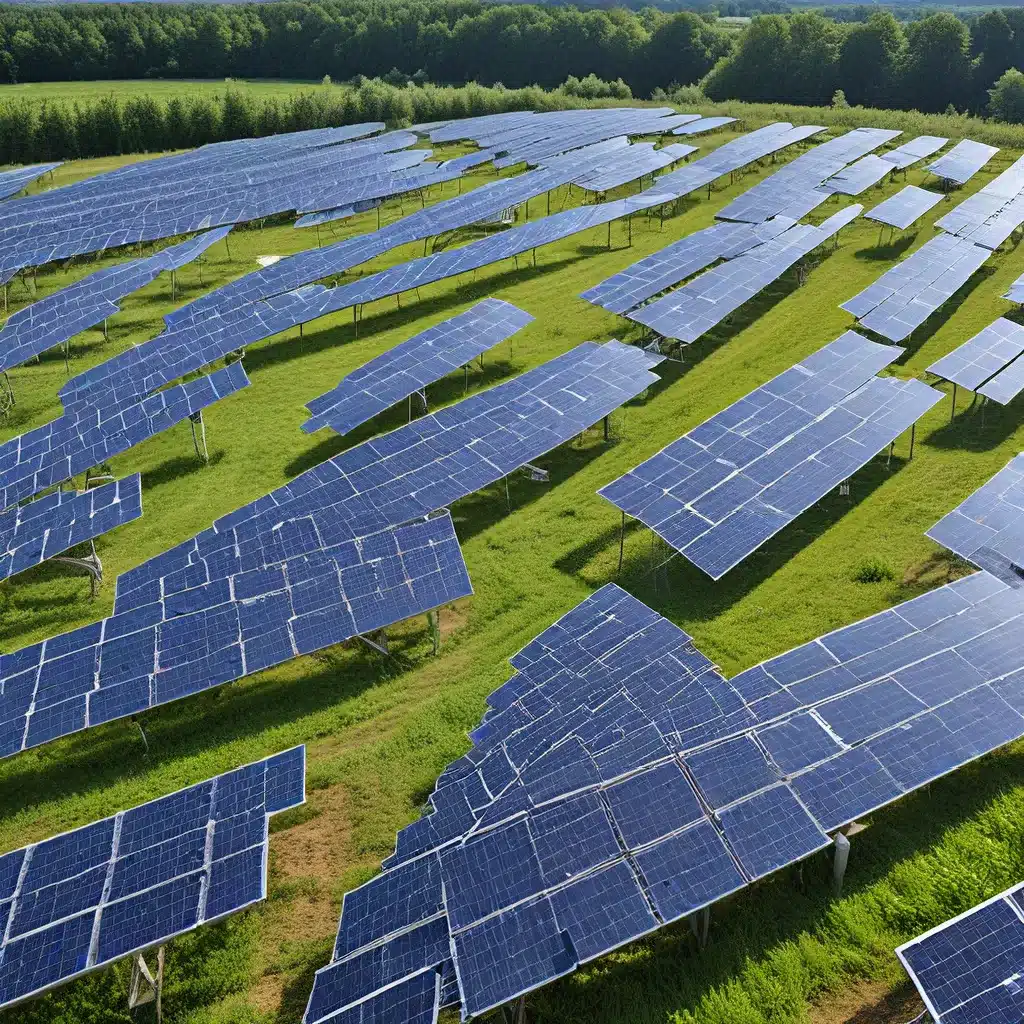
In the ever-evolving landscape of renewable energy, solar panel technology has emerged as a shining star. As more and more homeowners and businesses turn to the sun as a clean, sustainable power source, the importance of ensuring the quality and reliability of these solar panels has never been greater. And that’s where renewable energy certifications come into play.
The Significance of Certification
When it comes to solar panels, certification signifies that the product meets the specific standards set forth by the Bureau of Indian Standards (BIS) and the International Electrotechnical Commission (IEC). This provides a peace of mind to consumers and installers, knowing that the panels they are purchasing are safe, reliable, and will perform as expected.
But why is this certification so crucial? Well, think about it this way – when you’re making a significant investment in your home or business, you want to be confident that the equipment you’re buying is going to work as promised, right? That’s where the rigorous testing and evaluation process comes into play.
The Testing and Certification Process
Before any solar panel can be manufactured, sold, and installed in the commercial market, it must undergo a gauntlet of rigorous testing by independent laboratories. These tests assess a panel’s ability to withstand various environmental factors, perform efficiently, and operate safely.
In India, it’s compulsory for all solar panels to obtain a BIS certificate before they can be sold. This ensures that every model has been thoroughly tested and certified under the guidelines set forth by the Bureau of Indian Standards.
Performance Testing
This phase of the testing process measures a panel’s ability to convert sunlight into electricity under controlled conditions. Factors like power output, efficiency, and current-voltage (I-V) curves are all carefully evaluated to ensure the panel is living up to its performance claims.
Safety Testing
Ensuring the safety of solar panels is of the utmost importance. This part of the testing process evaluates the panel’s ability to withstand various environmental stresses, such as extreme temperatures, high winds, hail impact, dust, in-transit transportation, and fire. It’s crucial that these panels are built to last and operate safely, even in the harshest conditions.
Durability Testing
But the testing doesn’t stop there. Solar panels also undergo durability testing, which evaluates their long-term performance and degradation rate over time. This involves simulating real-world conditions, like exposure to ultraviolet (UV) light, moisture, and temperature fluctuations, to ensure the panel can maintain its efficiency and reliability for years to come.
Recognized Certification Bodies
After all the required tests are completed, a solar panel must be certified by a reputable organization or body. In India, the most well-known certification bodies include:
- Underwriters Laboratories (UL)
- TÜV Rheinland
- Mitsui Chemicals Group – PI Berlin
- Hi Physix Laboratory
- International Electrotechnical Commission (IEC)
These organizations ensure that the panel meets the specific standards set forth by the Bureau of Indian Standards and the IECC, giving consumers and installers the confidence they need.
The Importance of Compliance
At Firewinder, we understand the importance of compliance when it comes to solar panel certification. That’s why we are 100% compliant with all the standards specified by the BIS, making us pioneers in the field of solar panel manufacturing.
You see, when you choose a Firewinder solar panel, you can rest assured that it has undergone the most rigorous testing and certification process. This means you can have confidence in the quality, performance, and safety of your investment, knowing that your panel will deliver on its promises for years to come.
Staying Ahead of the Curve
But the world of renewable energy is constantly evolving, and we at Firewinder are always staying ahead of the curve. We’re closely monitoring the latest research and developments in solar panel technology, ensuring that our products are not only certified to the highest standards, but also pushing the boundaries of what’s possible.
For example, did you know that some experts believe the future of solar panel efficiency may lie in the use of perovskite materials? These innovative materials have the potential to dramatically increase the amount of sunlight that can be converted into electricity, making solar power even more accessible and cost-effective.
Of course, as with any emerging technology, there is still ongoing research and debate around the long-term viability and safety of perovskite solar cells. But that’s the beauty of the renewable energy industry – we’re always striving to push the boundaries of what’s possible, and that means constantly reevaluating our assumptions and exploring new frontiers.
A Bright Future Ahead
As we continue to navigate the ever-changing landscape of renewable energy, one thing is certain: the importance of solar panel certification will only continue to grow. Consumers and businesses alike are demanding quality, reliability, and safety, and it’s up to manufacturers like Firewinder to deliver.
So, the next time you’re considering a solar panel investment, make sure to look for that all-important certification mark. It’s a testament to the quality and reliability of the product, and it’s the best way to ensure that your investment in renewable energy pays off for years to come.
Who knows, maybe one day we’ll even see perovskite solar panels hitting the market, revolutionizing the way we power our homes and businesses. But for now, let’s focus on the tried-and-true certified solar panels that are driving us towards a cleaner, more sustainable future. After all, the future of renewable energy is bright, and it’s up to all of us to keep it shining.

